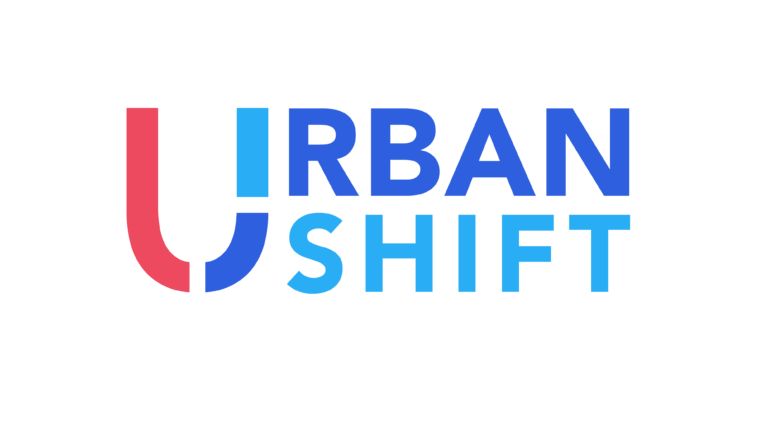
About us
Urban Shift is a project aimed at reaching the goals of the EU Green Deal by providing ground-breaking innovations for fighting climate change in urban areas. The project will create a Living Ecosystem where educational institutions and businesses implement a Living Curriculum for transdisciplinary start-up education with learners of a diverse background.
Over the 3 year programme, 10 transdisciplinary start-ups will be formed as well as other initiatives to boost the dissemination of the EU Green Deal and the work developed by the students.


Bringing together diverse expertise, trainers and business to find holistic and hands-on solutions for fighting climate change in urban areas

Creating regional impact networks supporting the EU Green Deal

Promoting the EU Green Deal via innovative communication, information and inspiration

Fighting climate change with
regard to urban challenges:
‘Urban Heat Islands’ &
’Food Waste/Circularity’
‘Climate/ Extreme Weather
Predictive Capability’ &
‘Mobility/ Circularity’

Promoting the EU Green Deal via innovative communication, information and inspiration
Consortium
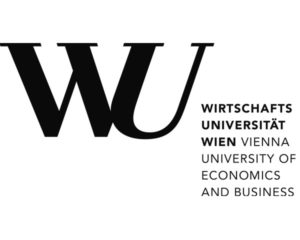
With about 27,000 students (23% are international students from 106 nations) the WU today is the largest educational institution for business and economics, business law, and social sciences in the EU. The university has not only a great experience with the coordination of large research projects, but also an extensive infrastructure and facilities to connect partners and stakeholders live or in effective video-conferencing rooms.
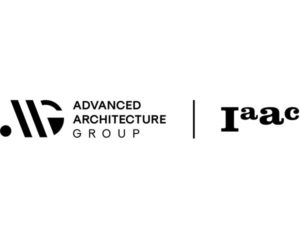 IAAC is an international centre for research, education, investigation; one of its objectives is to develop multidisciplinary programmes that explore international urban and territorial phenomena. The Self-sufficiency Agenda, central to all research lines developed in IAAC, establishes the responsibility for confronting the process of global urbanization from multiscalar operations and through prototypes that promote environmental, economic and social sustainability.
IAAC is an international centre for research, education, investigation; one of its objectives is to develop multidisciplinary programmes that explore international urban and territorial phenomena. The Self-sufficiency Agenda, central to all research lines developed in IAAC, establishes the responsibility for confronting the process of global urbanization from multiscalar operations and through prototypes that promote environmental, economic and social sustainability.
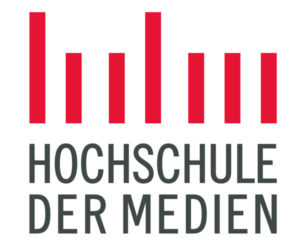
Hochschule der Medien Stuttgart is a public university of applied sciences which teaches media specialists. It covers a broad spectrum of media expertise: from printed media to electronic media, from design to business administration, from library science to advertising, from content for media to packaging technology, from computer science to information science to publishing and electronic media. About 30 accredited Bachelor’s and Master’s degree programs mirror this diversity. At the moment, more than 5500 students are enrolled at the university. HdM also runs the Generator HdM Startup Center, which supports students, alumni, employees as well as externals, in starting their businesses. It offers entrepreneurship consultation, courses and seminars, funding, an accelerator program for digital business models in the creative industries and much more.
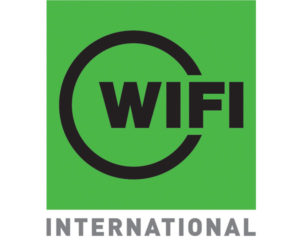 WIFI International is active in numerous countries in the SEE and CEE region as well as projects in South Eastern Asia, China and the Arab region. WIFI offers over 30,000 courses, seminars and programmes across the globe, with 12,000 trainers teaching over 350,000 course participants each year. One of the umbrella organisations is WIFI Austria which has 9 provincial WIFI’s and 80 branches in Austria.
WIFI International is active in numerous countries in the SEE and CEE region as well as projects in South Eastern Asia, China and the Arab region. WIFI offers over 30,000 courses, seminars and programmes across the globe, with 12,000 trainers teaching over 350,000 course participants each year. One of the umbrella organisations is WIFI Austria which has 9 provincial WIFI’s and 80 branches in Austria.
WIFI’s academic courses are offered in cooperation with universities and universities of applied sciences to ensure the accessibility of educational paths that lead all the way from apprenticeships to master’s degrees. Their new educational products are developed within eight business segments, management and corporate governance, personal development, languages, business economics, information technology, engineering, specific industries, and the vocational matriculation examination as well as foreman schools
WIFI’s innovative learning model LENA (derived from the German words LEbendig and NAchhaltig, meaning ‘vivid’ and ‘sustainable’) was developed based on the results of modern research into learning and competence for the practise.
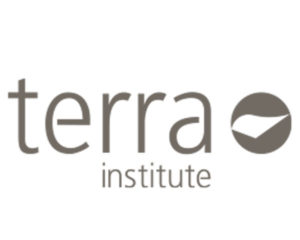
Terra Institute is an international acting firm and centre of competence for innovation and future viability of companies and society. 2012 Terra Institute was acknowledged as Regional Centre of Expertise on Education for Sustainable Development by the United Nations`University UNU – IAS to RCE “Euregio Tyrol”. The head-office is located in Brixen/Bressanone, Italy with ten employees. During the last years local branches and a network of offices were set up in Innsbruck, Vienna, London, Rovereto and Munich. 35 experts work in the network, holding strong skills and competences in various fields of sustainable business. Terra Institute is specialised in organisational and regional development based on systemic thinking and sustainable strategies. Based on best practices the company has developed a sustainability model, covering all relevant business areas: strategy, human resources, research & development, marketing, sustainability controlling and reporting. Terra Institute has the experience of dozens of successful guided transformation-processes towards more sustainability in enterprises of each scale and sector. Terra is engaged in several, also European projects, like CASE, SDGs Labs, ASTRA, together with companies and universities from all over Europe.
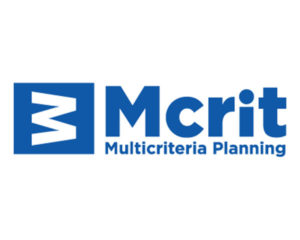 Multicriteria is a strategic planning consultancy with local and global activities having extensive experience working for cities, regions and private companies planning infrastructures and services. The name MCRIT stands for “Multicriteria“, the method of decision support that integrates quantitative and qualitative assessments of multiple assessment criteria. During more than 30 years, MCRIT has carried out over 1.500 projects and studies – including research and strategic foresight in the fields of mobility, transport and urban planning – both nationally and internationally. In said projects, integration, multidisciplinary and sustainability, combined with economic efficiency, are key elements in the solutions adopted. Mcrit’s research activities have been oriented to the development of advanced systems and planning methods, including information, forecasting and policy assessment models. We have been involved in a number of projects directly related to the impact assessment of European policies and investments, and the development of tools for the identification and analysis of territorial evidence.
Multicriteria is a strategic planning consultancy with local and global activities having extensive experience working for cities, regions and private companies planning infrastructures and services. The name MCRIT stands for “Multicriteria“, the method of decision support that integrates quantitative and qualitative assessments of multiple assessment criteria. During more than 30 years, MCRIT has carried out over 1.500 projects and studies – including research and strategic foresight in the fields of mobility, transport and urban planning – both nationally and internationally. In said projects, integration, multidisciplinary and sustainability, combined with economic efficiency, are key elements in the solutions adopted. Mcrit’s research activities have been oriented to the development of advanced systems and planning methods, including information, forecasting and policy assessment models. We have been involved in a number of projects directly related to the impact assessment of European policies and investments, and the development of tools for the identification and analysis of territorial evidence.
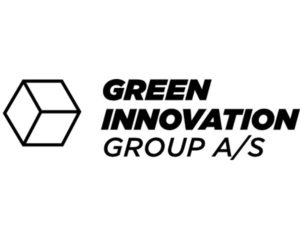 GIG is a management consultancy dedicated to foster the green transition. We help our clients identify and seize the business opportunities and create tangible impact – for their organisation and for the planet. We envision a regenerative planet with a stable temperature. To get there, we need to collaborate and that is why our work is organised around strong partnerships that enable the co-creation of solutions. Next to fostering these partnerships, we help clients to incorporate sustainability into the core of their company strategy, build capacities for a company’s sustainability transition by equipping the teams with the skills and processes they need to go green, and run full ESG Due Diligence to de-risk M&A transactions and lay the foundation for value creation.
GIG is a management consultancy dedicated to foster the green transition. We help our clients identify and seize the business opportunities and create tangible impact – for their organisation and for the planet. We envision a regenerative planet with a stable temperature. To get there, we need to collaborate and that is why our work is organised around strong partnerships that enable the co-creation of solutions. Next to fostering these partnerships, we help clients to incorporate sustainability into the core of their company strategy, build capacities for a company’s sustainability transition by equipping the teams with the skills and processes they need to go green, and run full ESG Due Diligence to de-risk M&A transactions and lay the foundation for value creation.
 Pretty Ugly Duckling (also known as Blue Growth Consulting) helps island nations develop sustainable and execute Blue Economy Strategies. We work closely with the government and the local private sector to ensure that oceans can be sustainably used to the benefit of current and future generations. To reach that goal, we combine existing opportunities with those offered by new technologies to improve livelihoods while safeguarding local natural resources.
Pretty Ugly Duckling (also known as Blue Growth Consulting) helps island nations develop sustainable and execute Blue Economy Strategies. We work closely with the government and the local private sector to ensure that oceans can be sustainably used to the benefit of current and future generations. To reach that goal, we combine existing opportunities with those offered by new technologies to improve livelihoods while safeguarding local natural resources.
